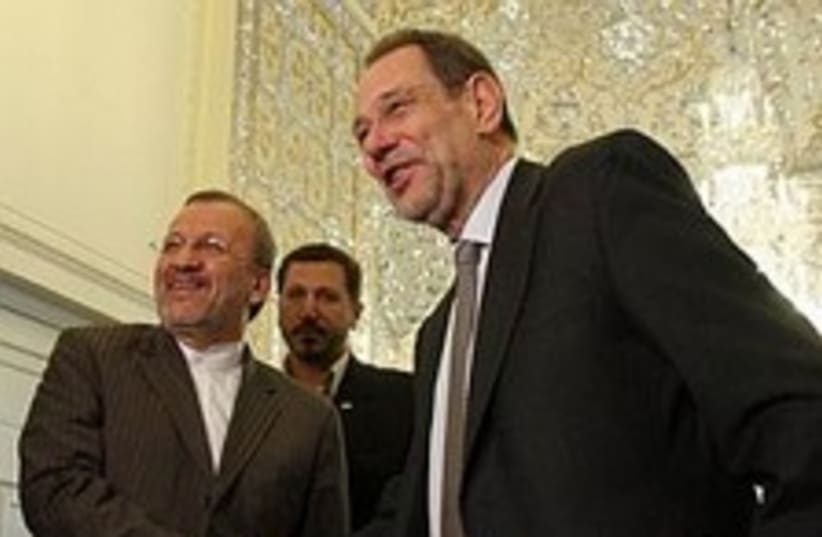| THE IRANIAN THREAT | |
| JPost.com special: news, opinion, blogs and more |
US: Iran needs time to consider nuke package
Teheran says it contains "positive steps" but also "ambiguities."


| THE IRANIAN THREAT | |
| JPost.com special: news, opinion, blogs and more |